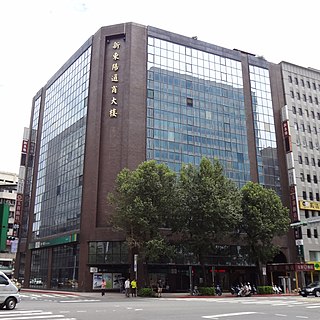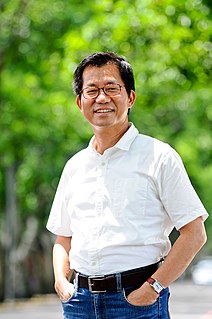It has been suggested that this article be merged with 2013 Taiwan food scandal and 2014 Taiwan food scandal . (Discuss) Proposed since February 2018. |
The 2011 Taiwan food scandal was a food safety scandal in Taiwan over the use of the plasticizer DEHP to replace palm oil in food and drinks as a clouding agent. [1] [2] The chemical agent has been linked to developmental problems with children as it affects hormones. [3]

Food safety is a scientific discipline describing handling, preparation, and storage of food in ways that prevent food-borne illness. The occurrence of two or more cases of a similar illnesses resulting from the ingestion of a common food is known as a food-borne disease outbreak. This includes a number of routines that should be followed to avoid potential health hazards. In this way food safety often overlaps with food defense to prevent harm to consumers. The tracks within this line of thought are safety between industry and the market and then between the market and the consumer. In considering industry to market practices, food safety considerations include the origins of food including the practices relating to food labeling, food hygiene, food additives and pesticide residues, as well as policies on biotechnology and food and guidelines for the management of governmental import and export inspection and certification systems for foods. In considering market to consumer practices, the usual thought is that food ought to be safe in the market and the concern is safe delivery and preparation of the food for the consumer.

Taiwan, officially the Republic of China (ROC), is a state in East Asia. Neighbouring states include the People's Republic of China (PRC) to the west, Japan to the northeast, and the Philippines to the south. Taiwan is the most populous state and largest economy that is not a member of the United Nations (UN).
Plasticizers or dispersants are additives that increase the plasticity or decrease the viscosity of a material. These are the substances which are added in order to alter their physical properties. These are either liquids with low volatility or solids. They decrease the attraction between polymer chains to make them more flexible. Over the last 60 years more than 30,000 different substances have been evaluated for their plasticizing properties. Of these, only a small number – approximately 50 – are today in commercial use. The dominant applications are for plastics, especially polyvinyl chloride (PVC). The properties of other materials may also be modified when blended with plasticizers including concrete, clays, and related products. According to 2014 data, the total global market for plasticizers was 8.4 million metric tonnes including 1.3 million metric tonnes in Europe.
Contents
- History
- Reactions
- China
- Hong Kong
- Macau
- Malaysia
- Philippines
- Vietnam
- South Korea
- United States
- Taiwan
- See also
- References
The food affected includes beverages, fruit juices, bread, sports drinks, tea, and jam. [4]
After two years of investigations, the Taiwanese government levied NT$1.2 million (approx. US$40,000) in fines against 37 companies, [5] or slightly more than US$1000 per company.








